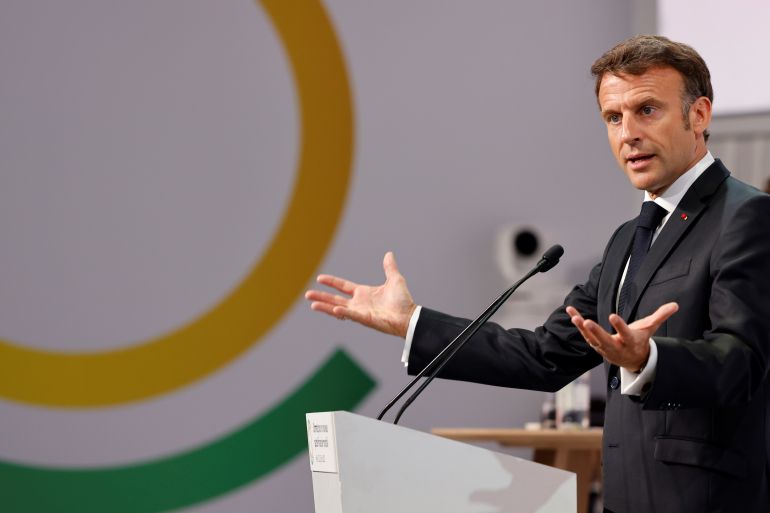The Paris Agenda for People and the Planet.
- We have just concluded an historic summit on international solidarity. We
are clear about our goal: a world where poverty is eliminated and the
planet preserved; a world where vulnerable countries are better equipped
to face the crises from climate change and conflicts. We are clear
about our strategy: leverage all sources of finance, including official
development assistance, domestic resources, and private investment.
- To deliver on our goals, we need to stay united. To prevent fragmentation, we will transform the governance of the international financial architecture to make it more efficient, more equitable, and fit for the world of today.
We have identified four guiding principles that will help us achieve this objective:
• No country should have to choose between fighting poverty and fighting for the planet.
• Country ownership of transition strategies: facing
different needs, countries may need to pursue diverse transition paths
while coming together to meet the goals of the Paris Agreement. We are
accelerating Just Energy Transition Partnerships and Country Packages
for Forest, Climate and Nature.
• We need a financial stimulus with more resources to support
vulnerable economies lifting their population out of poverty while
protecting the planet.
• An international financial system that delivers more: the role of private capital.
Meeting global challenges will crucially depend on the scaling up of
private capital flows to transform emerging and developing economies,
for a net-zero and nature-positive world and to reduce inequalities more
efficiently.
Overall, we need a strong financial stimulus to back the concrete measures that we have agreed or advanced at the Summit:
• We have achieved the target of 100bn SDR (or equivalent
contributions) to be channeled to the most vulnerable countries,
especially in Africa, and call for additional pledges. We call on
governments able to do so to work on further SDR rechanneling
mechanisms.
• There is now a good likelihood that we will reach our target of
100Bn of climate finance this year. We will closely monitor this target
and ensure that most vulnerable countries access their fair share.
• We need to be more efficient. Each dollar of lending by MDBs
should be complemented by at least one dollar of private finance. Based
on this, we expect from them to leverage at least 100Bn$ of private
money each year in developing and emerging economies.
• We also expect an overall increase of 200bn of MDBs’ lending
capacity over the next ten years by optimizing their balance sheets and
taking more risks. If these reforms are implemented, MDBs may need more
capital. We will also cooperate to boost the investment for a list of
major infrastructure projects in Africa.
• We need to accelerate debt suspension and treatments when needed,
including to increase the fiscal space of countries in debt distress. We
will deliver on the common framework as we did for Chad and Zambia. We
also need to support each other when one is hit by a disaster. That
calls for specific tools including climate resilient debt clause.
• We need all financial institutions and actors to work together. We
will coordinate our MDBs and public development banks for in the
Finance in Common network. We will cooperate on energy transition
through the Climate Club.
- Further work will be advanced working with G20 and COP presidencies on the following areas:
• New avenues for international taxation in order to fulfil our climate commitments. We will also work to take back control on financial flows that escape legitimate tax systems.
• We will promote fair partnerships, in order to develop added value by transforming raw material and critical minerals locally, and reinforce our commitment to deploy healthcare and food infrastructures to increase sovereignty.
• An ambitious replenishment of IDA to keep and increase funding of the most concessional facilities of the World Bank and the IMF.
• Including climate vulnerability in debt sustainability assessments of the World Bank and the IMF, including to enable more investment in adaptation to climate change.
• Ways to mitigate or reduce excess perceived risk, in particular foreign exchange.
• A new international finance facility for forests to pay for ecosystem services, with a goal to invest capital on the market and grant excess return to committed countries.
- To ensure that commitments translate into concrete achievements, we will introduce a joint working committee including international and regional organizations, countries and civil societies to follow this roadmap. We will meet again in Paris, before COP30, to take stock of these commitments.
https://www.elysee.fr/en/emmanuel-macron/2023/06/23/the-paris-agenda-for-people-and-the-planet





Post a Comment